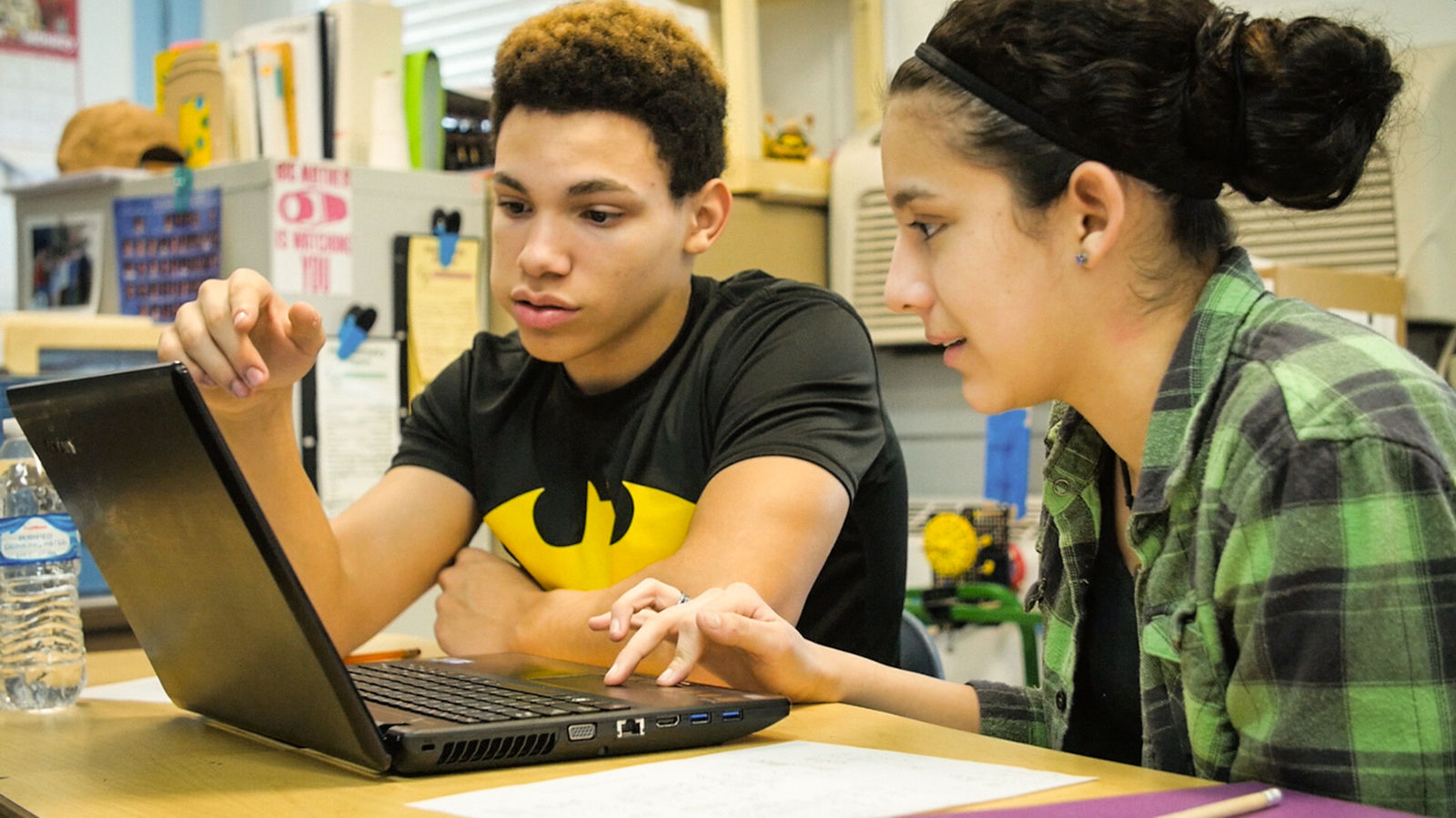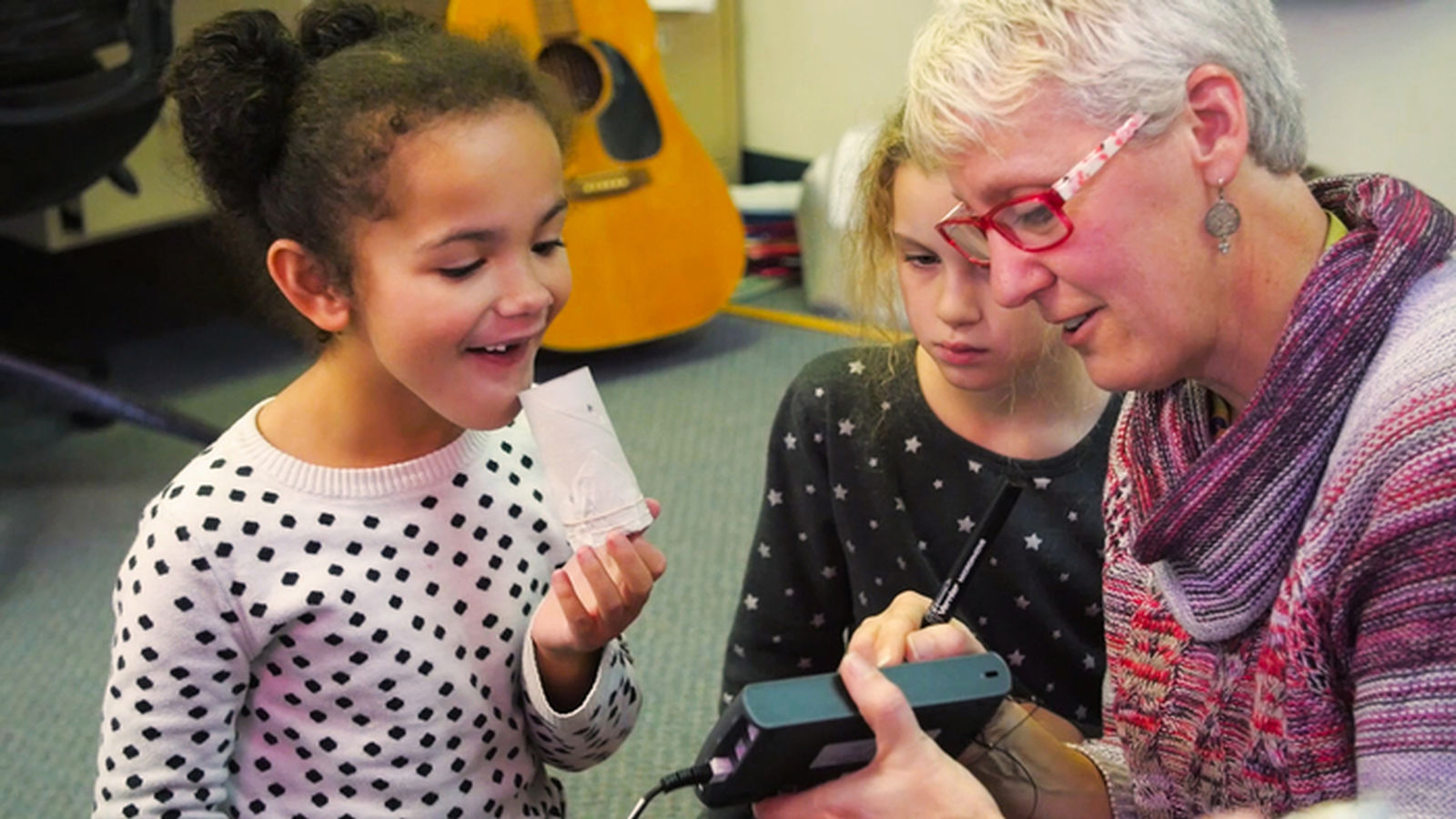Washington STEM Steps Up to Support High-Quality CS Learning in Districts Across the State.

What challenge is Washington STEM tackling?
Washington State, the birth place of companies like Boeing, Microsoft, and Amazon, has long been a recognized hub of science, technology, and engineering innovation in the United States. Perhaps it is not surprising then to see state leaders turning their attention to ensuring all young people in the state have access to a strong science, technology, engineering, and mathematics (STEM) education and, more specifically, a foundation in computer science (CS).
Computer science is foundational for many careers, and the knowledge, skills, and mindsets associated with learning CS is integral to building analytical and creative skills across industries and job functions. However, high-quality CS curriculum is not widely available or accessible; thus, districts and schools are particularly challenged in implementing the kind of educational experiences that research is indicating all children need for success.

How is Washington STEM addressing the need?
In order to support districts to identify high-quality computer science curriculum, Washington STEM recognized the need for guidelines around defining quality CS learning. Working alongside the Office of the Superintendent of Public Instruction (OSPI) and other partners (e.g., Microsoft, TEALS, code.org, Launch Computer Science), they drew on the input and expertise of multiple stakeholder groups, including CS program specialists and an advisory committee, to review, vet, and adopt K-12 CS standards.
Standards of learning form the backbone for the development of high-quality, developmentally appropriate curriculum and aligned assessment systems. Thus, for subjects like CS that do not yet have well-established and clearly outlined standards (such as those, e.g., for English language arts and math), districts are at a loss when it comes to choosing among the emerging market of CS instructional materials. CS standards like those adopted in Washington will provide much more direction for districts, parents, and professional development providers on the CS concepts, content, and skills students need at each grade level, and how to select and implement curricular materials to vertically sequence and align CS learning across the grade levels.
Do you have success stories you would like to share with other educators and practitioners?
Knowing the urgent need for immediate CS learning, but also understanding the challenges of implementing and integrating a new set of standards into teachers’ practice, Washington STEM has worked with OSPI to plan a careful and thorough roll-out of the standards to make sure school leaders and teachers are well-versed in the standards and are equipped with the knowledge they need to teach CS effectively and identify quality CS curriculum.
This is particularly important for a subject like CS that has long been perceived as difficult, complex, and only necessary for those who aspire to high-tech careers, causing many teachers to be anxious or fearful of teaching CS. With a central goal of building educators’ confidence in their ability to teach CS, Washington STEM has been working with OSPI and their partners to plan a multi-year, phased implementation process that heavily focuses on teachers’ needs. The plan calls for regional computer science specialists who can educate teachers through webinars and in-person meetings and spells out milestones across a range of system indicators.
Another important part of implementing the standards is the compiling of curricula and resources that align to the state’s CS standards. Washington STEM, a member of the CSforAll Consortium, worked with K-12 leadership throughout the state and partners from industry and OSPI to develop a website in 2017 – http://www.cs4wa.org – that will house resources and guidance for selecting and using CS programs and curricula in Washington classrooms.
districts' ability to identify high-quality CS curriculum
What’s next?
Washington STEM knows that the standards and the implementation plan are just the beginning of the journey to ensure strong CS learning across the state. As the standards come to life in classrooms, the organization will continue to focus less on developing novel resources (there are already many high-quality resources available) and increasingly focus on building the capacity of educators to effectively teach CS to all students.
To do this, Washington STEM will continue to support the Computer Science Education Grant process in partnership with OSPI. These grants provide necessary funds for school districts to increase computer science education efforts by training and credentialing teachers in computer science, providing and upgrading technology needed to learn computer science, and introducing students to and engaging them in computer science. The grants will also continue to focus on underserved communities.
Moreover, the state-wide coalition believes that continuing to build the case for CS and support teachers’ confidence and comfort in CS instruction is critical to long-term success of CS learning. To do this, they plan to tell stories of success in CS education in Washington, featuring schools, teachers, and students that are excelling in CS teaching and learning.